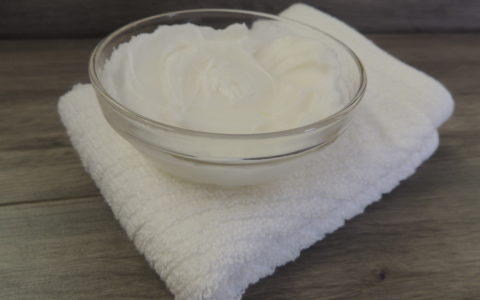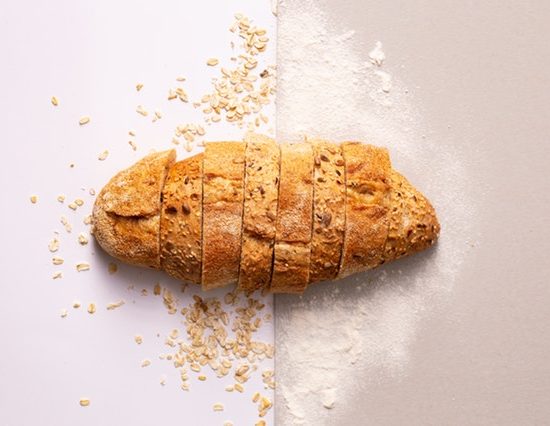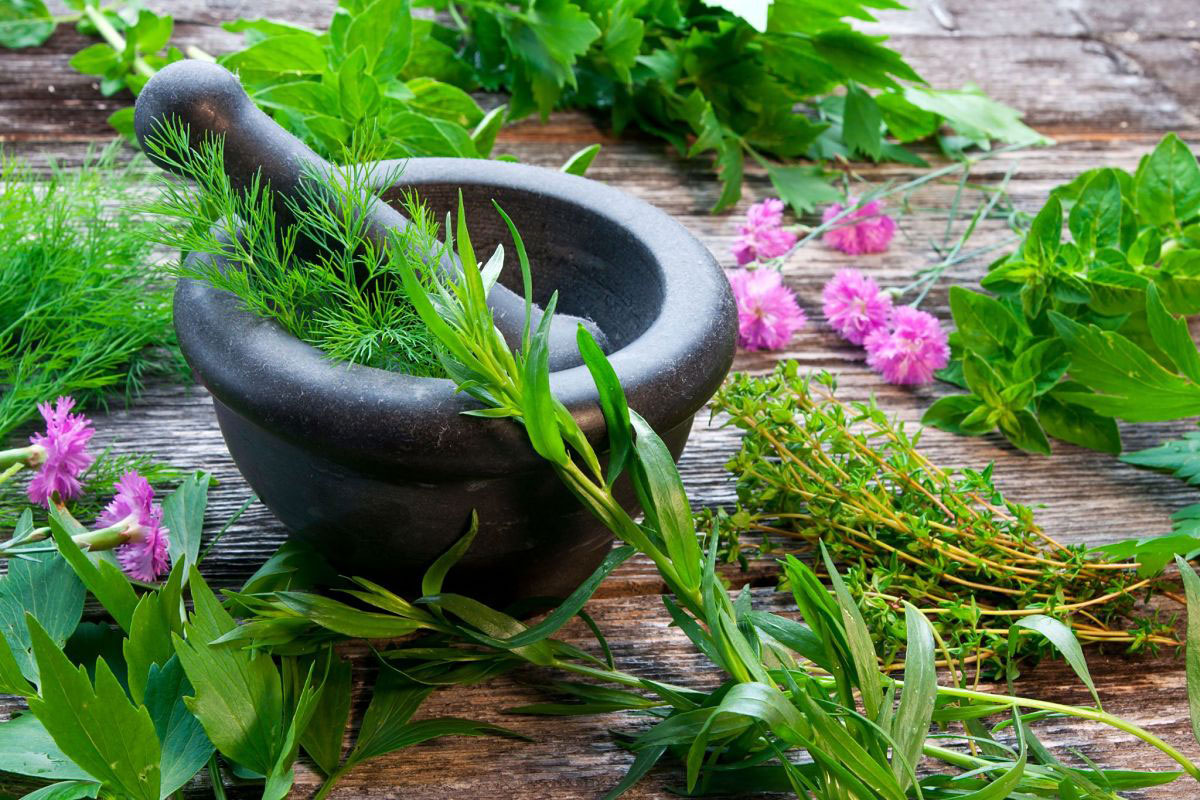
There is undeniable proof that some plants, not all of them mind you, have outstanding healing properties. One cannot turn to modern medicine each time he finds himself in an SHTF situation.
Sure, med stockpiling helps (check out my article on best over-the-counter painkillers), but you shouldn’t lose sight of the fact that most are made from artificial compounds that tend to put way too much strain on the liver and tummy. In fact, if you read the little label on every pain med, you would see that even the lightest one like Ibuprofen should be taken after a hearty meal.
So, here I am, talking about the remarkable properties of natural remedies. As a prepper, I’ve learned that Mother Nature is quite offering when it comes to healing plants.
Anyway, in searching through my drawers, I came upon this nice little notebook that belongs to my grandpa. Very nice, filled with great memories but, most importantly, some tidbits on healing plants that should be grown around the yard.
Needless to say, I started working on my backyard pharmacy project as soon as the nice weather settled in. For those of you who are not too fond of gardening or believe it to be a waste of time, energy, or money, think again. You really don’t need to be a rocket scientist to figure out that if something goes wrong, home-grown stuff will be more valuable than gold (that’s why I’ve decided to dig up a veggie garden the next time I head up to my hunting cabin).
Anyway, getting back to today’s topic, these plants I found in grandpa’s scrapbook are really something. I mean, beyond the fact that they can be used to give taste even to the blandest dish, they’re also neat in treating all sorts of health issues. Moreover, they’re stupidly easy to grow, require little care, and, if you have a head for business, you can probably make a lot of money by selling them (extra gigs really pay off).
So, if I haven’t bored you to death already, here are my choices in plants that you should definitely consider growing in your backyard.
- Basil
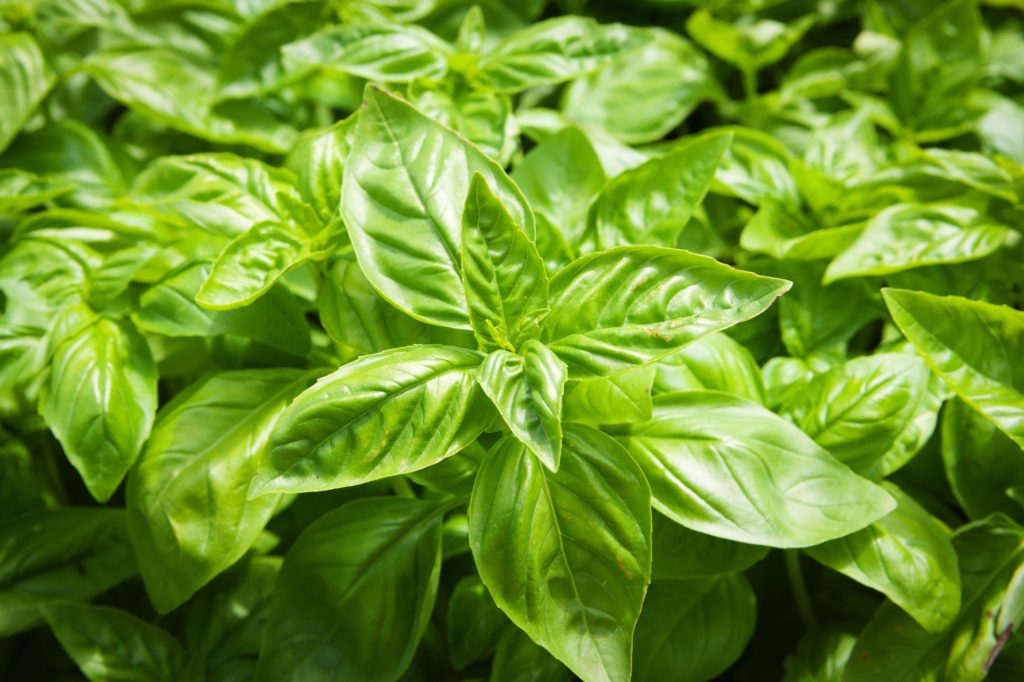
Entire books can be written on this topic, but I’m just going to stick to the facts. Basil is great for seasoning (I prefer the green kind over the dried variety), as its aroma is reminiscent of lime.
Apart from that, studies have shown that dishes made with fresh basil, tinctures, and teas are great for bringing down the cholesterol level, as well as reinforcing the blood vessels. Since I’ve acquired a taste for Italian dishes, I’ve used basil in virtually every pasta dish I cooked (even dropped a couple of leaves in my Tiramisu, but that’s another story).
Anywho, basil can be grown both indoors and outdoors, and it requires little attention. Just be sure the plants get at least six hours of sunlight per day. Don’t water them too much because they don’t need that much moisture.
Tea made from basil is great for soothing the nerves. Just wash a couple of leaves, crush them in a mortar, and infuse them in hot water for a couple of minutes. That’s it. You can add some honey and ginger for some extra spiciness.
2. Sage
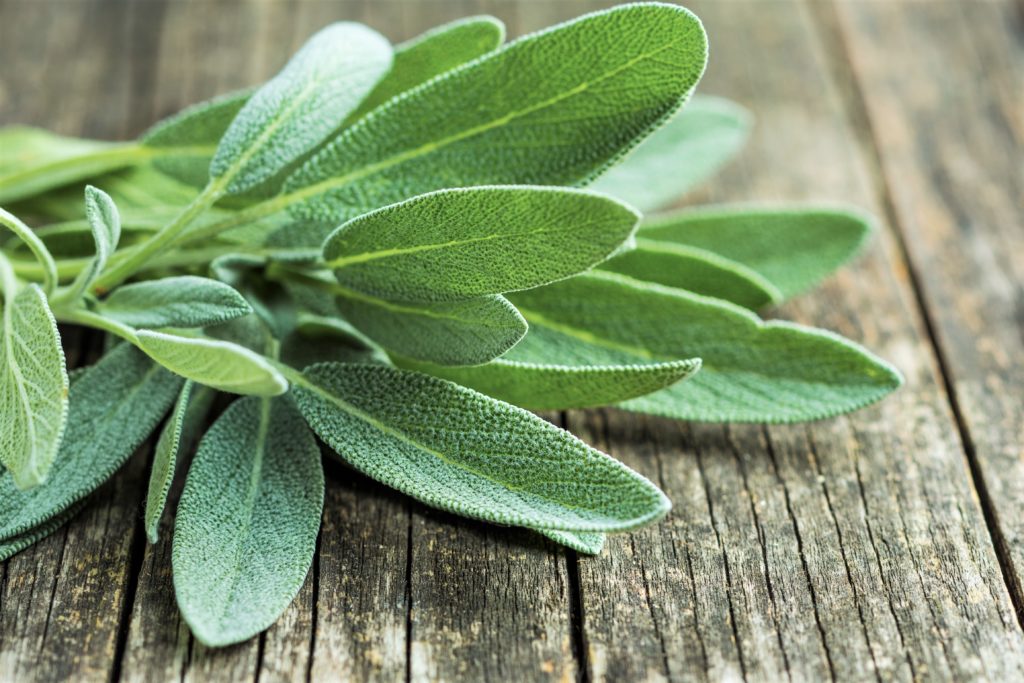
No, not that kind of sage. I was referring of course to the herb which gives a strong, almost earthy-like aroma to your dishes. Grandma always uses to put sage in all her meat dishes (you should try adding some dry sage to your pork chops next time).
Just like basil, it’s very easy to grow around the house. The only trick to sage is to don’t overwater and overfertilize the plants. Teas and tinctures made from sage are great against pharyngitis, tonsillitis, and for sore throats, in general. The plant’s crushed leaves can be made into a poultice, quite efficient at dealing with cuts, bruises, sores, and burns.
To make tea from sage leaves, rip two or three, wash them thoroughly, and put them I cup. Add boiled water and allow them to infuse a couple of minutes.
3. Rosemary

This plant will always remind me of The Sleeper, one of Poe’s most awesome poems (“The rosemary nods upon the grave, the lily lolls upon the wave.” Sorry for that flight of fancy, guys. Anyway, rosemary is great for any kind of dish, especially pork cuts and fish.
As a natural remedy, it boasts quite a record: detoxes the body, relieves migraines, improves blood circulation, rids you of morning breath, and also helps with any bouncy-bouncy (sex) related problems. Granny wrote down that rosemary works best if it’s grounded into a fine powder. Take a teaspoon of this stuff every morning, before breakfast. Keep into under your tongue for 15 minutes then swallow.
4. Parsley

No soup or broth would ever taste the same without parley. I myself make sure to have an ample supply of this plant, regardless of the season. As a health aid, parsley’s packed with vitamins A and C. More than that, the increased iodine content makes parley not only great anti-rad food but also a great thyroid regulator.
If you have kidney stones, juice made from freshly-picked parsley leaves can alleviate some symptoms, especially going to the toilet for the number one part. Just stick a handful of parsley leaves into the blender, add a small cup of water, and some lemon juice.
Mix it, pour it into a mug, and drink it on an empty stomach. You should also know that parsley’s also good for the ladies if it’s first eaten by gents (wink, wink).




